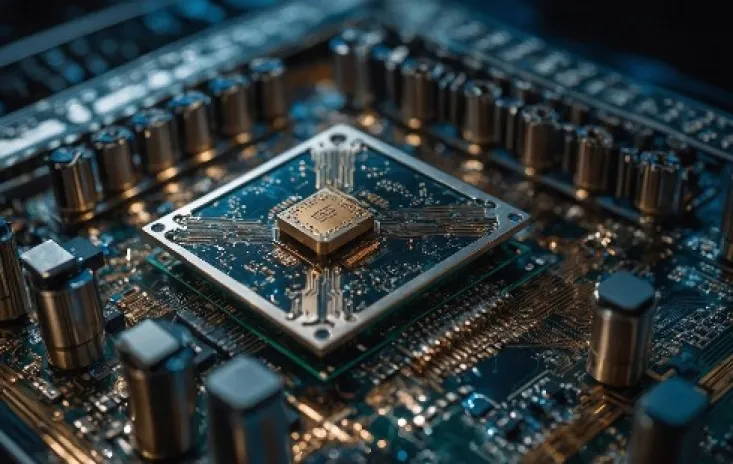
Ukrainian Diplomat Calls for Stronger Security Commitments Beyond NATO-Style Guarantees
Section: Politics
 The competitive landscape for satellite internet is evolving as Starlink, the renowned space-based internet service by Elon Musk's SpaceX, faces new contenders. The Chinese company SpaceSail and Amazon's Project Kuiper are stepping into the arena, raising concerns in the West regarding China's advancements in satellite technology. In response to these developments, the European Union (EU) is taking significant steps to bolster its semiconductor manufacturing capabilities by approving substantial subsidies for a facility in Austria.
The competitive landscape for satellite internet is evolving as Starlink, the renowned space-based internet service by Elon Musk's SpaceX, faces new contenders. The Chinese company SpaceSail and Amazon's Project Kuiper are stepping into the arena, raising concerns in the West regarding China's advancements in satellite technology. In response to these developments, the European Union (EU) is taking significant steps to bolster its semiconductor manufacturing capabilities by approving substantial subsidies for a facility in Austria.
Starlink has made a name for itself since its launch, deploying more satellites into low Earth orbit than all its rivals combined since 2020. This dominance has elicited apprehension in China, prompting the country to increase investments in satellite internet provision and related military research aimed at tracking satellite constellations. As a result, both SpaceSail, backed by the Chinese government, and Project Kuiper are emerging as formidable competitors to Starlink, complicating the global satellite internet market.
Alongside these developments, the EU has prioritized reducing its dependency on non-European countries for chip production. The Union aims to enhance its global market share in the semiconductor sector to 20% by 2030. Following the setbacks of previous investments in semiconductor plants in Germany, the EU is now channeling funds into a semiconductor manufacturing facility in Styria, Austria, with a financial commitment of EUR227 million.
Furthermore, the EU Commission has put forward a comprehensive strategy to strengthen its response to large-scale cyberattacks, which could potentially disrupt the functioning of member states and the internal market. The plan highlights the need for coordinated action to ensure public safety and mitigate risks associated with cybersecurity threats.
In a related economic shift, Apple has announced plans to relocate its production operations from Mexico to the United States, committing to invest $500 billion over the next four years and create approximately 20,000 jobs. This move is perceived as a strategic response to potential adjustments in U.S.-China trade relations.
As nuclear energy sees a resurgence in response to increasing global energy demands, new nuclear power plants are being proposed. Proponents argue this method can provide electricity with minimal environmental impact. However, many projects are facing delays and rising costs, such as the Flamanville 3 reactor in France. An innovative alternative is being explored by the British company Core Power, which is developing floating nuclear power plants intended to generate energy off the U.S. coast.
In additional news, a German citizen recently achieved a legal victory against Meta Platforms at the Stuttgart District Court, ruling that the company cannot retain data that it cannot utilize, establishing a precedent for data privacy and protection.
Meanwhile, Netflix has unveiled its plan to invest $1 billion in Mexico over the next four years, underscoring the economic significance of the entertainment sector in the region. The costs associated with Microsoft product licenses for the German government are projected to rise in 2024, reflecting ongoing investment in technology infrastructure.
On the technological front, there are ongoing discussions about the need for standardized documentation for land-based fiber optic cables, similar to the existing protocols for undersea cables. Lastly, Apple's anticipated release of the MacBook Air with M4 chip is scheduled for March, generating excitement among tech enthusiasts.

Section: Politics

Section: News

Section: News

Section: News

Section: Arts

Section: News

Section: News

Section: News

Section: News

Section: News

Health Insurance in Germany is compulsory and sometimes complicated, not to mention expensive. As an expat, you are required to navigate this landscape within weeks of arriving, so check our FAQ on PKV. For our guide on resources and access to agents who can give you a competitive quote, try our PKV Cost comparison tool.

Germany is famous for its medical expertise and extensive number of hospitals and clinics. See this comprehensive directory of hospitals and clinics across the country, complete with links to their websites, addresses, contact info, and specializations/services.

Join us at the Kunstraum in der Au for the exhibition titled ,,Ereignis: Erzählung" by Christoph Scheuerecker, focusing on the captivating world of bees. This exhibition invites visitors to explore the intricate relationship between bees and their environment through various artistic expressions,...
No comments yet. Be the first to comment!